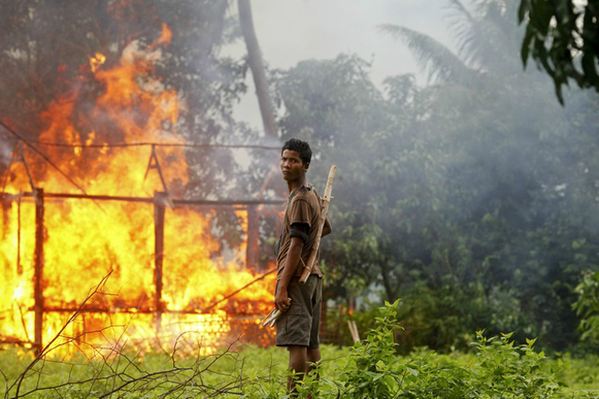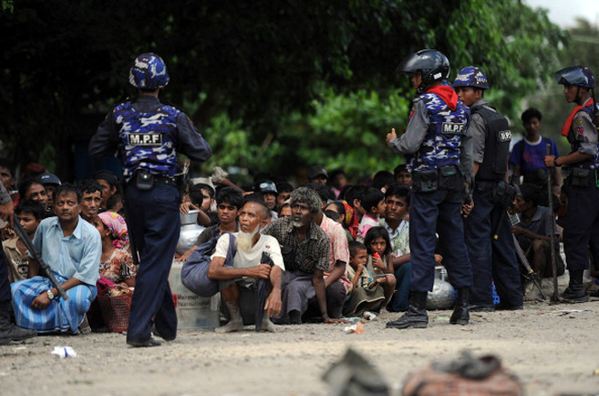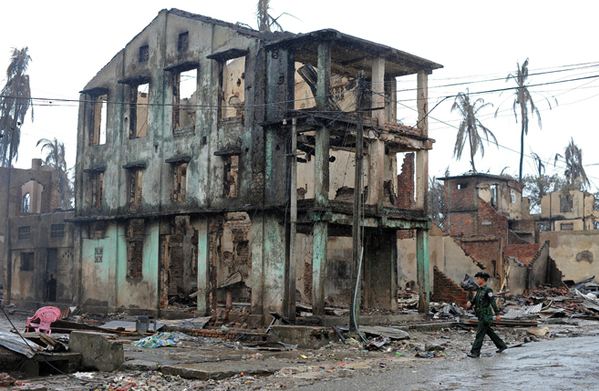
An Arakan man stands outside a burning house during fighting between Arakan Buddhist and Rohingya Muslim communities.
Since its independence in 1948, Burma’s history has been written by a string of ethnic and political rebellions in what has left the country in a state of civil unrest.
This past May, tensions between Arakan Buddhists and Rohingya Muslims escalated after reports of three Muslim men fatally attacking an Arakan Buddhist woman. On June 3, a group of Arakan villagers retaliated by killing ten Muslims. Thousands of Rohyingya Muslims rioted in Manungdaw on June 8, destroying a considerable amount of Arakan property and leaving an unknown number of people dead.
Sectarian violence soon spread through Sittwe and surrounding areas as Arakan and Rohingya communities attacked villages and neighborhoods destroying homes, shops and places of worship.

Muslim residents are evacuated from their homes amid violence in Sittwe on June 12, 2012
The Burmese army settled the violence in Sittwe but on June 12, Arakan fighters burned down 10,000 Rohingya and non-Rohingya Muslim homes. More recently, attacks between the two communities continue as 13 people have been killed and more than 300 homes have been burned down in western Myanmar. The situation has since left tens of thousands of people displaced.
The issue has continued to receive international attention as an increasing number of Rohingya Muslims attempt to flee the conflict because of the lack of rights and options they can receive in the country. According to Human Rights Watch, the Myanmar Government’s restrictions on humanitarian access to Rohingya Muslims has left many in the community displaced, and in need of food, shelter and medical care.
President Thein Sein has declared a state of emergency and has set up a commission to investigate the violence.

A Burmese soldier walks by a destroyed building in Sittwe, the capital of Arakan State.
– Juan Frausto
(Photo credit: Human Rights Watch )
Think people should hear about this?